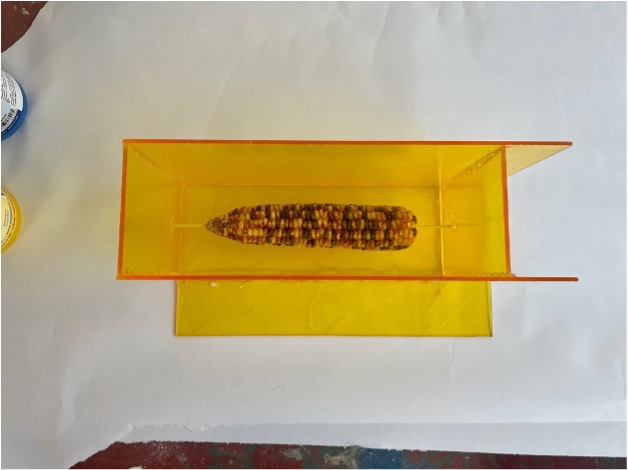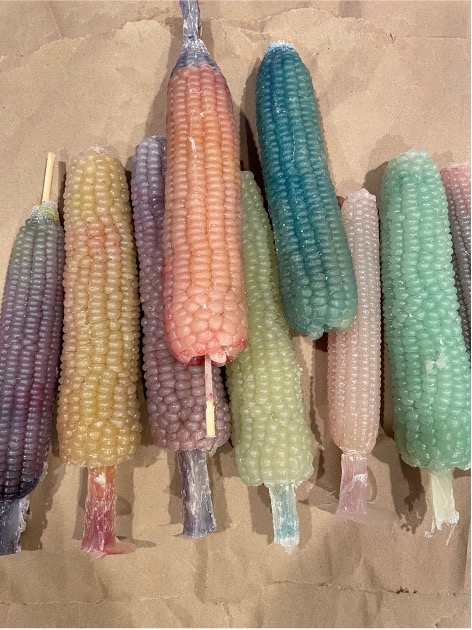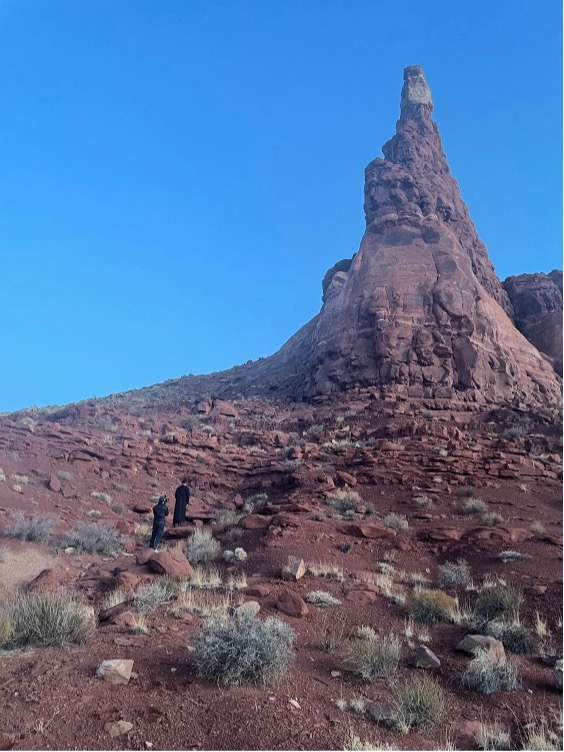College of Fine Arts
28 Engaging Embodiments: Exploring Materials, Entities, and Phenomenology
Alix Wright
Faculty Mentor: Moses Williams (Art & Art History, University of Utah)
Experiencing the world doesn’t start and end with the body. Jane Bennett in in her book, Vibrant Matter, discusses the relationship to the natural world and shifts the focus of the human experiences of things to things themselves, abandoning the binary viewpoint that we as humans are dominant and take precedence over objects and things.
My mentor is a professional interdisciplinary artist investigating this topic during his residency at the Utah Museum of Contemporary Art for an upcoming solo exhibition. Through sculptures, large scale installations, video, and sound he examines our relationship to materials, entities, and the “things” of the world that we encounter. The focus is on how each of us as embodied beings come to know the world only through active, considered engagement. The work is a phenomenological study that considers the inseparable reality of cognitive and material experience. It is an attempt to give greater attention to all that we encounter in our daily lives. There is no separating the cognitive and material experience that takes place in and through the body.

David Abram is an American philosopher and performance artist who has had great influence on our beliefs of perception. Expanding on Merleau-Ponty’s belief of phenomenology, he challenges the idea of the subject and object and what roles they play. He believes that the body is made whole through the experiencing of things, others, and the natural world. Similarly, this creative body of work will strive to make the viewer see how they navigate in the world and challenge what their place is in the world: placing a greater significance on the relationship between bodies, materials, objects, things, and seeing ourselves in collaboration and an ongoing negotiation.
Assisting my mentor in this research, I have been able to engage with materials in a way I never have before. I have been exposed to new materials and processes that have allowed me to engage with the world and creating differently, seeing new possibilities and ways of problem-solving. The presence of the body in the way of creating is an important aspect within my own practice and through this opportunity I have been able to gain more technical skills when creating.

A significant portion of my research has been learning mold-making. With discussions on the natural world, it’s important for my mentor to include food sovereignty. With an importance placed on the environment, materials, and processes, you can’t separate that from something incredibly important that we all consume every day and need to live- food. It is often forgotten where food comes from and the labor required to bring it to our table. With that, traditional practices of preparing food are often lost. My mentor has incorporated corn into his large-scale installations. For part of my research, I learned how to create the molds from corn and then cast resin into those molds to create a large quantity of corn. I experimented with the coloring of the corn to allow for a diversity in the type of corn just like you would encounter in actual corn.

I had the opportunity to travel to Southern Utah and New Mexico to assist my mentor in documenting landscape and performance. Taking the research to the source allows for learning that could never be experienced in the classroom. While studying the whole bodied experience, we are able to completely immerse ourselves with the natural world and the “things” that are all around us. We become fully intertwined with material.
Works Cited
Abram, David. “The Spell of the Sensuous: Perception and Language in a More-than-Human World.” Vintage, 1997.
Abram, David. “An Ecologist’s Journey to a Sense of the World.” Orion Magazine, 2003. (This article discusses Abram’s ecological Phenomenology and his exploration of perception in relation to the environment.)
Bennett, Jane. “Vibrant Matter: A Political Ecology of Things.” Duke University Press, 2010.
Merleau-Ponty, Maurice. “Phenomenology of Perception.” Translated by Colin Smith. Routledge, 2012.

